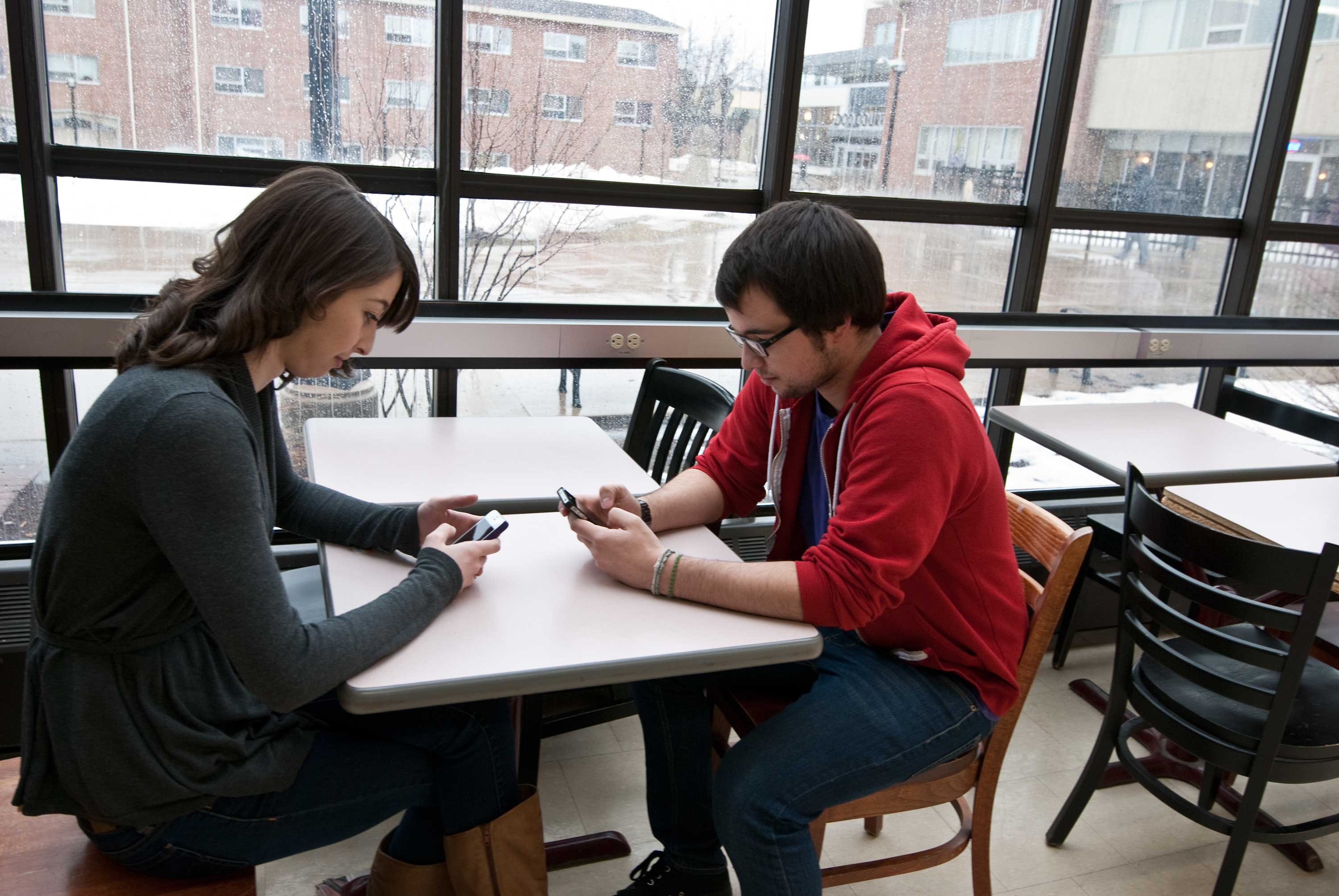Life beyond the screen


“I remember a time when the Internet was just the Internet and real life was cooler,” reads a recent tweet from Hayley Williams, lead singer of Paramore.
This brief memento of a thought sheds light on an important subject that concerns the majority of the student body at Wilfrid Laurier: technological dependence.
Today, technology enters virtually every realm of our lives. Whether it’s for social relationships, schoolwork, research, entertainment, job applications or simple communication, technology plays a critical role in how we conduct our days and converse within society. Computers, tablets, iPods and mobile devices are just a few of the technological devices that assist us in our daily tasks, from the complex to the mundane.
“I use technology in almost every aspect of my life. It is rare that I’m not using technology in some way. I use my cell phone almost every couple of minutes,” said Kathryn Riley, a fourth-year communication studies major.
“When in class or at work I am on a computer. When I get home I turn on my TV. Technology consumes the majority of activities in my everyday life.”
These devices go unquestioned and the majority of people enjoy the fast-paced and high-graphic qualities that owning a smartphone, laptop or any other device has. It’s important, however, to look beyond the ‘pros’ of technology and its presence in our lives and to also consider the potential downside.
Have we become too dependent on technology? In the process of making technological gains, what is lost? These are the types of questions that entered my mind after reading Williams’ tweet.
“I feel as though we are all left without a choice but to be dependable on our technological devices,” said Autumn Smith, a fourth-year communication studies major, on her dependency towards using technology.
“Profs expect us to participate in online discussions. Information about the community we live in is largely available online and societal expectations require us to be constantly available through e-mail or over the phone.”
If the consensus is that many people are dependent on their technological devices, often spending more time engaging with a screen than with another person face-to-face, it makes you wonder about the impact this has on our communication.
After posing this question to Riley, she expressed her opinion that overall technology has had a negative impact on the amount of face-to-face interaction she has.
“While face-to-face communication is typically lengthier and more fulfilling, communicating over text, e-mail and even phone calls are usually very straightforward and short,” she said.
“And because a large part of our communication with people today is through these devices, we tend to have less meaningful conversations, more often.”
In a time when technology is continuously marketed as the next ‘must have’ item, it is easy to become lost in a world of Wi-Fi connection and the latest touch screen gadgetry.
However, lest we forget that there is still life outside of the screen to remain in control of our devices, and not to let them control us.


